2023 has seen increased interest in THCA (tetrahydrocannabinolic acid), a non-psychoactive compound within cannabis and hemp, due to its potential health benefits. In Nebraska, while THCA is legal under the federal Farm Bill's stipulation of less than 0.3% delta-9-THC content, its status is subject to the state's more restrictive laws. This creates a complex legal environment where consumers must navigate varying interpretations and regulations across different jurisdictions within Nebraska. THCA has been studied for its potential therapeutic qualities, including anti-inflammatory, anti-nausea, and neuroprotective effects, with ongoing research to further understand its efficacy and safety, particularly in medical care as a non-psychoactive alternative. Users in Nebraska should be aware of the evolving legal landscape and consult with medical professionals before incorporating THCA into their health regimen due to mild side effects like dry mouth and eyes, potential for anxiety or paranoia at higher doses, and its sedative-like properties. As the scientific community continues to explore THCA's properties, staying informed on the latest developments, especially regarding THCA's legal standing in Nebraska, is essential for anyone interested in this compound's potential health applications.
Exploring the nuanced relationship between THCA flower side effects and legal considerations, particularly within Nebraska’s evolving regulatory landscape, this article offers a detailed examination of the cannabinoid gaining attention for its potential therapeutic benefits. We delve into the science behind THCA, its impact on health, and the consumer experiences that shape our understanding of its effects. With a focus on how legal status influences access and use, we navigate the complexities surrounding THCA’s legality in Nebraska and across the nation. This article also provides insights into dosing considerations, the entourage effect with other cannabinoids, and safety precautions to ensure responsible consumption. Join us as we explore the current research, legal frameworks, and future prospects of THCA flower.
- ThCA Flower and Its Legal Status in Nebraska: A Comprehensive Overview
- Understanding THCA: The Non-Psychoactive Cannabinoid Gaining Attention
- Potential Side Effects of THCA Flower Consumption
- Dosing and Tolerance: Factors Influencing THCA Flower Reactions
- Analyzing the Evidence: Research on THCA Flower's Health Implications
ThCA Flower and Its Legal Status in Nebraska: A Comprehensive Overview
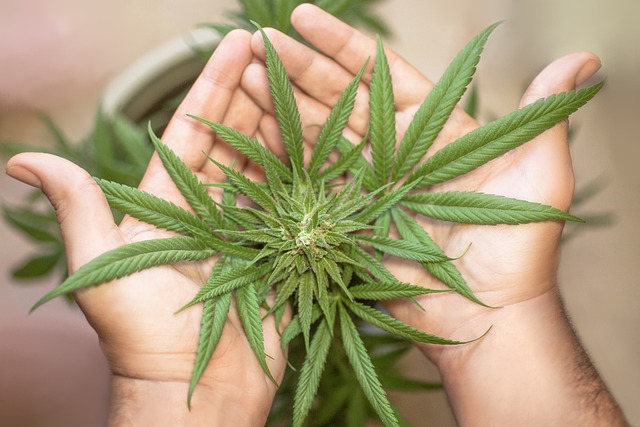
In recent years, the conversation surrounding cannabinoids and their derivatives has expanded significantly, with tetrahydrocannabinolic acid (THCA) gaining attention for its potential therapeutic properties. THCA is the non-psychoactive precursor to delta-9-tetrahydrocannabinol (THC), the primary psychoactive component of cannabis. As interest in cannabinoids grows, so does curiosity about their legal status across different states. Nebraska, a state with stringent laws regarding cannabis, presents an interesting case when it comes to THCA flower. While traditional forms of cannabis are strictly regulated and largely prohibited under Nebraska law, the legality of THCA flower is a subject of ongoing debate and legal interpretation. The Nebraska Criminal Code classifies THC as a Schedule I controlled substance, but THCA, which does not induce psychoactive effects until it is decarboxylated to THC, exists in a legal gray area. This has led to confusion among consumers, law enforcement, and legal authorities. It’s important for individuals interested in THCA flower to stay informed about the evolving regulations, as possession and use can vary greatly depending on local jurisdictions within the state. As of the latest updates, the federal government distinguishes between THC and THCA, with the latter being legal under the 2018 Farm Bill, provided it is derived from hemp with less than 0.3% THC content. This federal distinction offers a glimmer of clarity for those within Nebraska looking to explore products containing THCA flower, yet they must remain vigilant and aware that state laws can be more restrictive. Consumers should always verify the legality of THCA products in their specific location within Nebraska, as compliance with both state and federal regulations is paramount.
Understanding THCA: The Non-Psychoactive Cannabinoid Gaining Attention
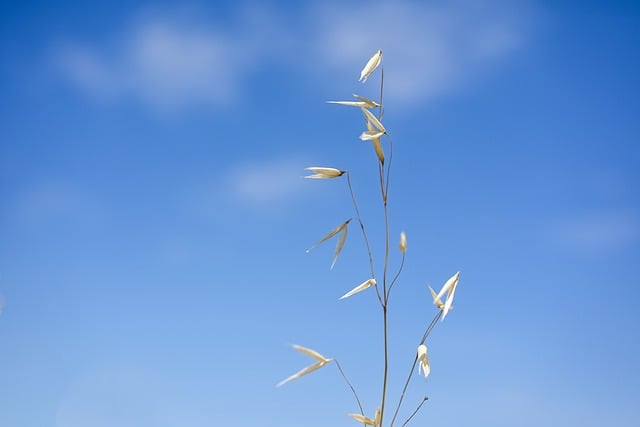
THCA, or tetrahydrocannabinolic acid, is a naturally occurring compound found in the cannabis plant that has garnered significant attention due to its potential therapeutic properties. Unlike its more famous counterpart, THC, THCA is non-psychoactive, meaning it does not induce the ‘high’ commonly associated with cannabis use. This distinction has piqued the interest of researchers and consumers alike who are exploring the benefits of THCA without the mind-altering effects. As of the current understanding, THCA is legal in Nebraska, provided that it contains less than 0.3% delta-9-THC, following the federal Farm Bill guidelines. This legal status opens up avenues for its use and study within the state’s regulatory framework.
The interest in THCA stems from a growing body of research suggesting it may offer a range of therapeutic effects. Studies indicate that THCA could have anti-inflammatory, anti-nausea, anti-anxiety, and neuroprotective properties. It’s also being investigated for its potential to combat cancer cells without harming healthy cells. In Nebraska, where the legislative landscape regarding cannabis is evolving, THCA is becoming a focal point for those seeking alternative treatments for various conditions. As the legal and scientific communities continue to explore the full spectrum of THCA’s potential, its role in the cannabinoid conversation is set to expand, offering new possibilities for health and well-being.
Potential Side Effects of THCA Flower Consumption
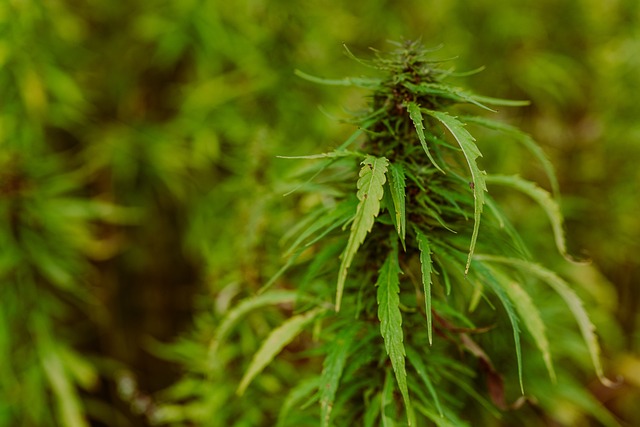
Delta-9-tetrahydrocannabinolic acid (THCA) is the non-psychoactive precursor to the well-known cannabinoid, delta-9-tetrahydrocannabinol (THC). As THCA flower becomes increasingly available under various state laws—such as in Nebraska where it’s legal provided it contains less than 0.3% THC on a dry weight basis—consumers are exploring its potential benefits and side effects. While THCA is often associated with therapeutic properties, it’s crucial to understand its impact on the human body. Some individuals may experience mild side effects upon consumption of THCA flower. These can include dry mouth and dry eyes, which are commonly associated with cannabis use. Additionally, some users might feel a sense of anxiety or paranoia, particularly at higher doses. It’s also possible for THCA to induce drowsiness or lethargy in certain individuals, reflecting its sedative-like effects. Users with pre-existing health conditions should consult healthcare professionals before incorporating THCA flower into their wellness regimen, as it may interact with other medications or exacerbate certain conditions. Understanding the nuances of THCA and its legal status, such as its legality in Nebraska, is essential for safe and informed consumption practices.
Dosing and Tolerance: Factors Influencing THCA Flower Reactions
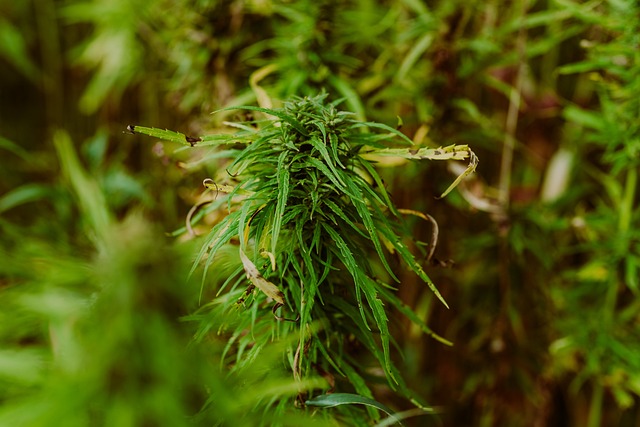
When exploring the effects of THCA flower, which is the raw form of tetrahydrocannabinolic acid, a precursor to THC found in cannabis and hemp plants, it’s crucial to consider individual differences in reactions. Dosing with THCA flower can vary significantly based on factors such as body chemistry, tolerance levels, and the specific strain’s potency. In Nebraska, where the legal status of THCA flower is subject to change with evolving regulations, users must navigate these factors carefully. The concentration of THCA in the flower directly influences the potential psychoactive effects once exposed to heat, which convert THCA into THC. Users should start with a low dose to gauge their sensitivity and gradually increase the dosage if necessary, allowing enough time for the body to adapt. Factors like weight, metabolism, and previous experience with cannabinoids can all affect how one reacts to THCA flower. It’s also important for users to be aware of any allergies or sensitivities they may have to cannabinoids or other components in the flower. As such, personal tolerance is a key element in determining the right dosage and subsequent reactions when using THCA flower, especially within the legal framework set forth by Nebraska’s regulations.
Analyzing the Evidence: Research on THCA Flower's Health Implications
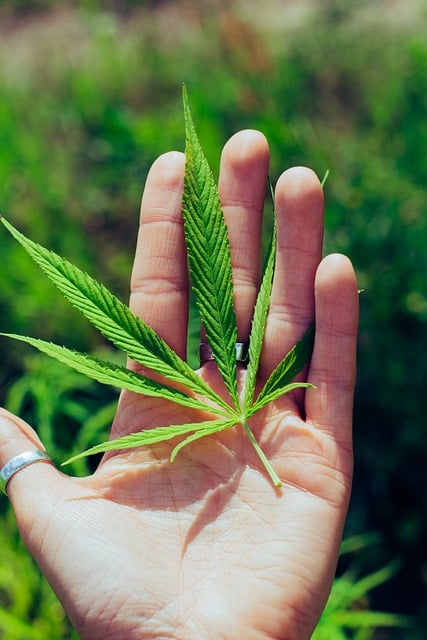
Recent studies have shed light on the potential health implications of THCA flower, the non-psychoactive precursor to THC found in cannabis and hemp plants. The legal landscape of cannabinoids varies across regions; for instance, THCA’s status as a legal compound in Nebraska has been a topic of discussion within the state’s legislative framework. As researchers continue to analyze the evidence, findings suggest that THCA may offer therapeutic benefits without the psychoactive effects associated with its counterpart, THC. Studies have indicated that THCA might exhibit anti-inflammatory and neuroprotective properties, which could be beneficial in managing pain and certain neurological disorders. However, it is crucial to note that while these preliminary findings are promising, more comprehensive research is required to fully understand the scope of its health implications. The evidence thus far has been gathered from both laboratory experiments and anecdotal reports from users who have utilized THCA flower in compliance with local laws, such as those in Nebraska. As the body of research grows, it will provide a clearer picture of how THCA might be incorporated into healthcare practices, potentially offering a valuable alternative for patients seeking relief from various conditions without the mind-altering effects of traditional cannabis products.
In conclusion, the emergence of THCA flower as a non-psychoactive cannabinoid has sparked considerable interest for its potential health benefits and legality status, particularly within Nebraska’s regulatory framework. While THCA is recognized as legal in Nebraska under certain conditions, it is imperative to approach its consumption with caution due to the known side effects and individual differences in dosing tolerance. The research on THCA flower’s health implications is still evolving, underscoring the importance of a cautious and informed approach to its use. As such, consumers should be well-informed about the current legalities and scientific findings regarding THCA, ensuring a safe and responsible integration of this compound into their wellness routines.
